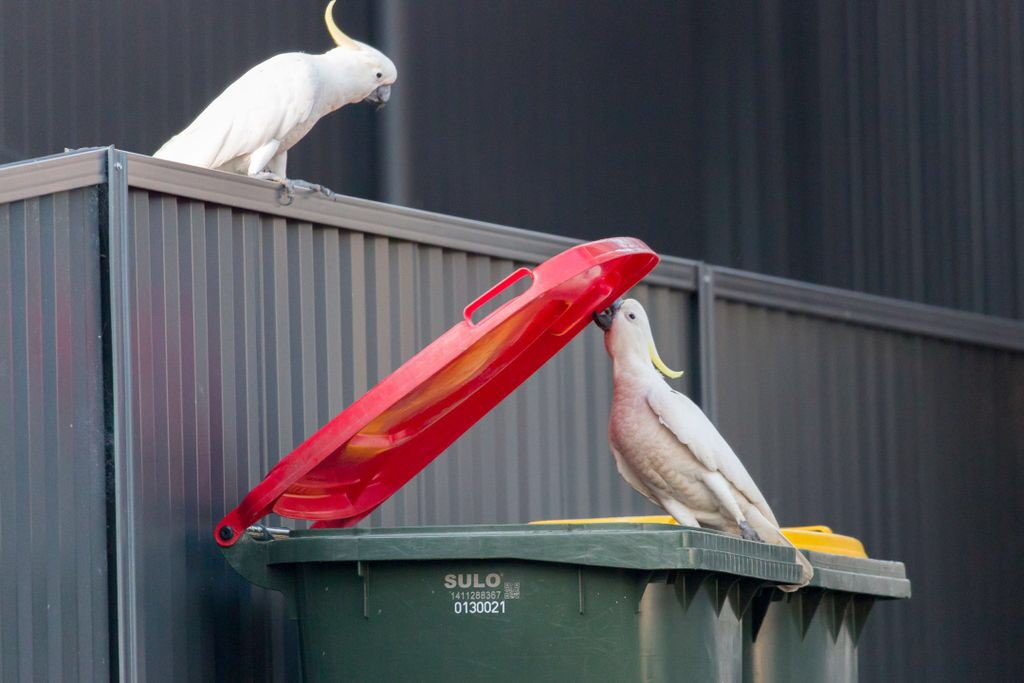Spread of innovation in urban sulphur-crested cockatoos
Investigating the potential for a cultural arms-races in bin-opening and bin-protection behaviour between sulphur-crested cockatoos (Cacatua galerita), and local human residents.
Research themes
Project status
Content navigation
About

The capacity for innovation, social learning and culture is vital to the success of humans, facilitating our colonization of almost every habitat on Earth. But has culture been a determinant of success in any other species? Urban environments present a natural experiment to investigate these questions, as cities provide novel challenges and opportunities that animals need to respond to over short time-scales. Our recent research on one urban-adaptor, the sulphur-crested cockatoo, has described the spread of one innovation, flipping bin lids to raid household food scraps in Sydney Australia. In this work, and the help of citizen-science, we mapped emergence and geographic spread of this behaviour to observe the formation of a local ‘bin-opening culture’.
People have now responded to this behaviour by protecting their bins with a variety of methods. Our evidence for social learning of bin protection by people (and anecdotal observations that birds can defeat measures) leads to the potential for an interspecies cultural arms race. If so, it would be the first such described. This project investigates whether this is occurring by using a combination of observations and experiments to test where, when and how cockatoos can defeat bin protection measures. It combinse spatial mapping and citizen science approaches with wild fieldwork on habituated cockatoos the North Wollongong / South Sydney areas.

